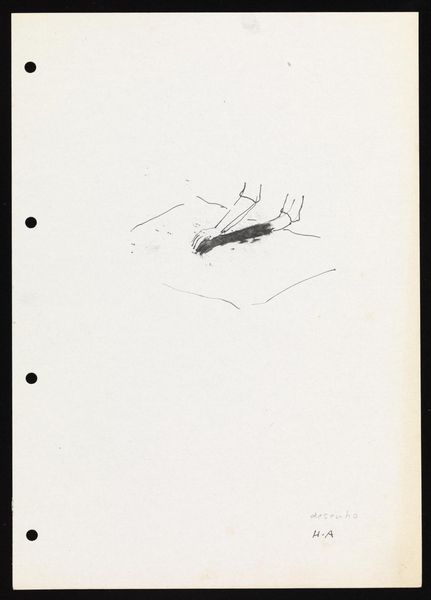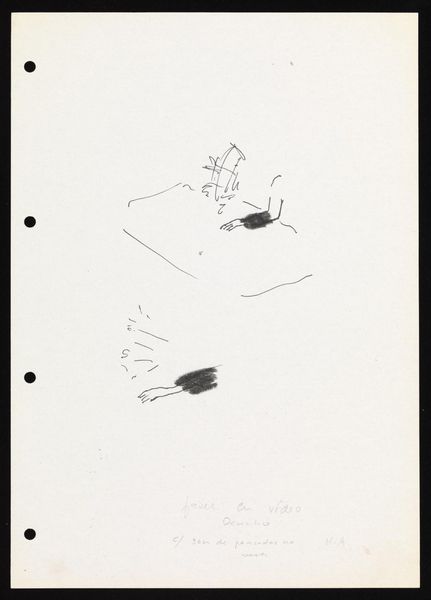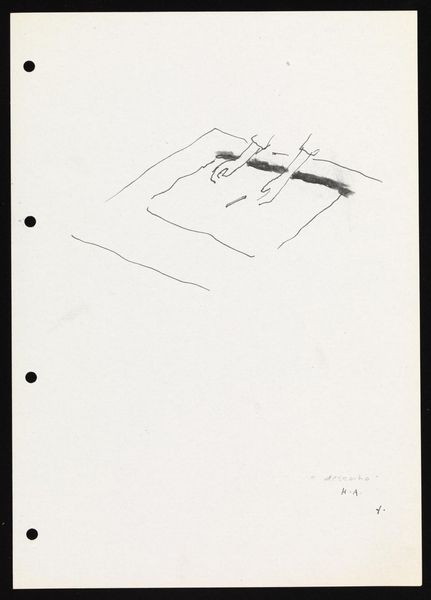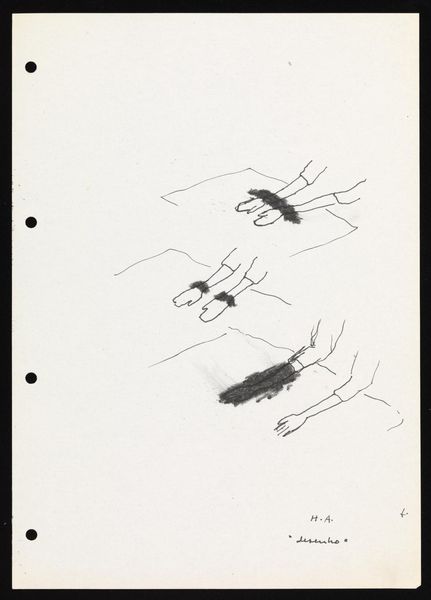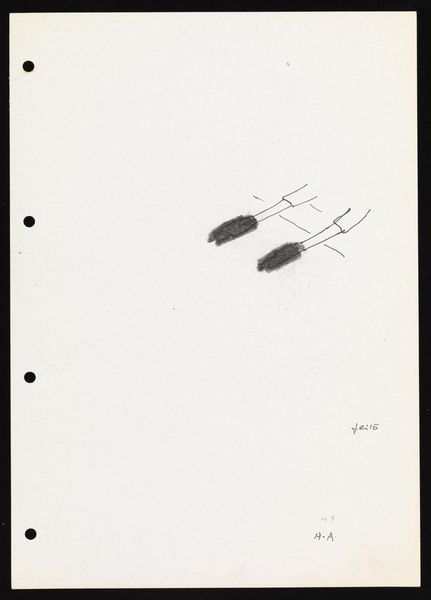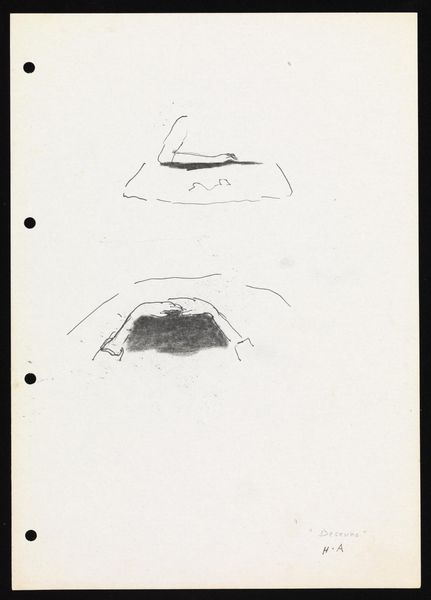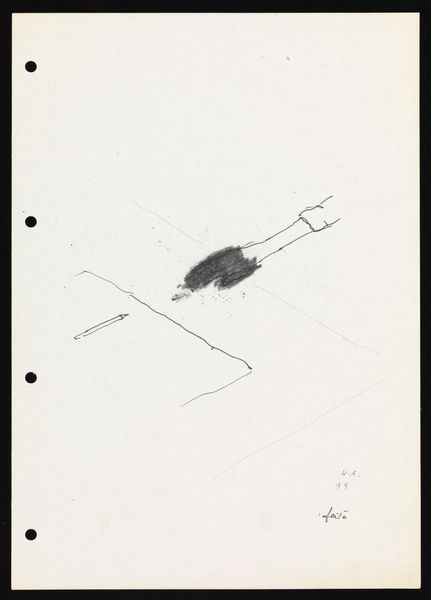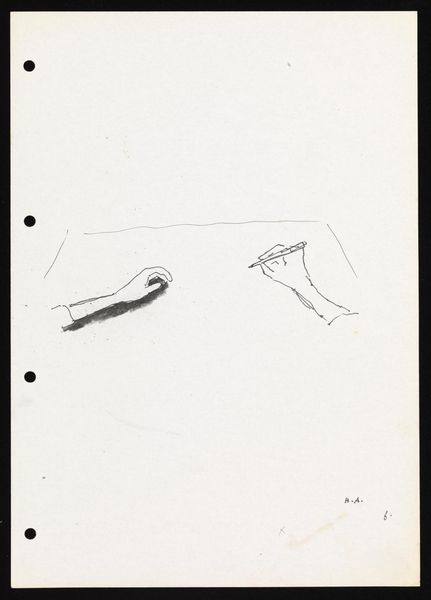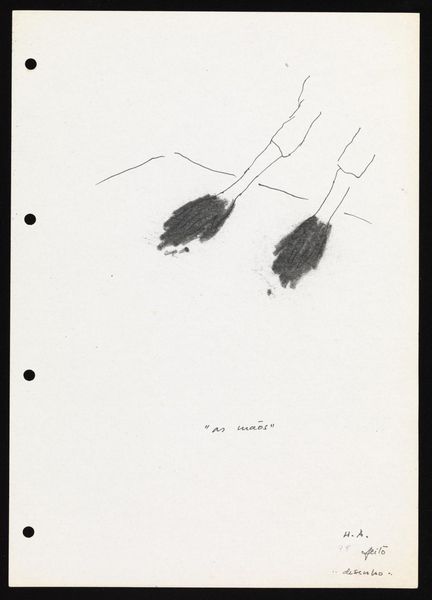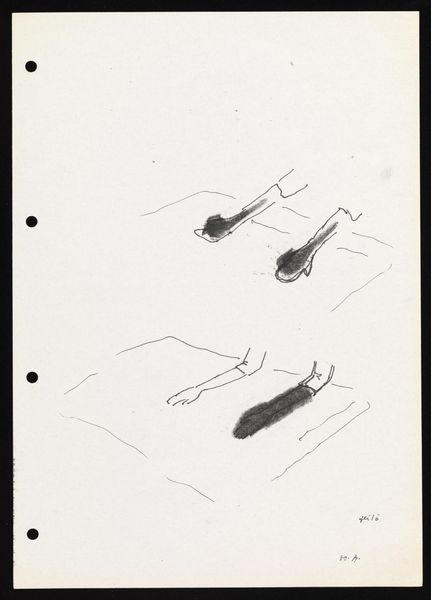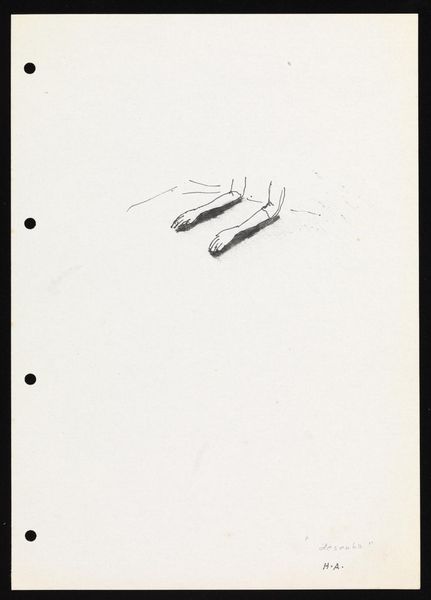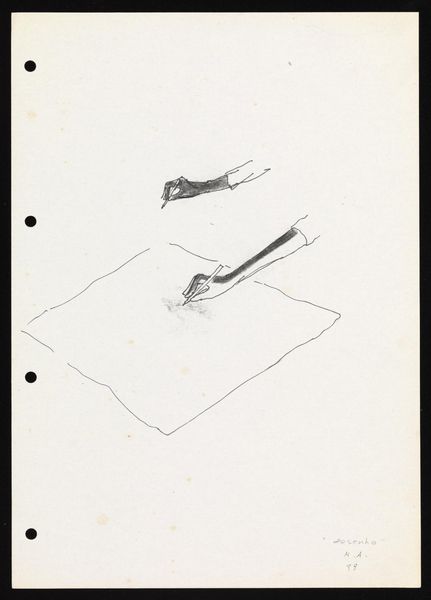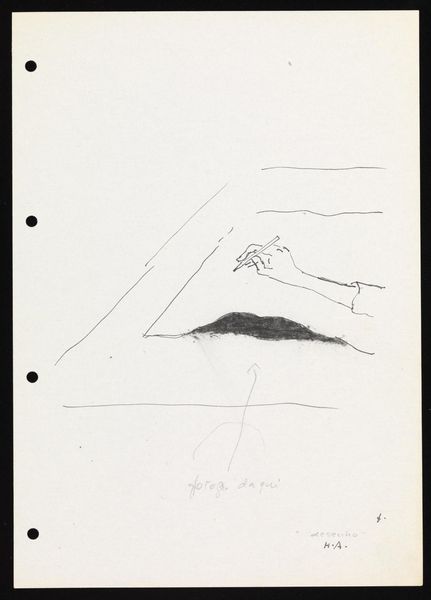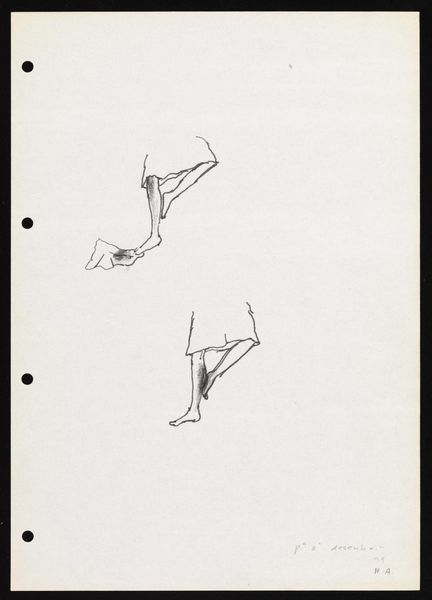
Dimensions: support: 294 x 208 mm
Copyright: © Helena Almeida | CC-BY-NC-ND 4.0 DEED, Photo: Tate
Editor: This is "Drawing (with pigment)" by Helena Almeida. It's, well, a drawing, quite sparse. It feels almost like a stage, with that cross in the middle. How do you interpret this work? Curator: Considering Almeida's broader practice, particularly her exploration of the female body in relation to space, this drawing becomes quite charged. The "stage" you mentioned – is it a platform, a site of performance? The crossed-out area, a symbolic suppression? What does that evoke for you in the context of women's representation in art history? Editor: I hadn't thought of it that way, but the suppression angle makes sense. It feels like something is being actively obscured, or maybe even a censored body. Curator: Precisely. Almeida’s work often challenges patriarchal structures within the art world. This seemingly simple drawing invites us to consider the unspoken constraints imposed on female artists and their self-expression. What have you learned? Editor: I see how a minimalist drawing can hold powerful feminist ideas when you consider the artist's background and concerns. Thanks.
Comments
tate 10 months ago
⋮
http://www.tate.org.uk/art/artworks/almeida-drawing-with-pigment-t13482
Join the conversation
Join millions of artists and users on Artera today and experience the ultimate creative platform.
tate 10 months ago
⋮
This is one of thirty-eight drawings in Tate’s collection by Almeida, all of which are rendered in ink, pen and pigment on sheets of off-white A4 paper. Each sheet has four holes punched down one side, and a number of the sheets have drawings on both sides. The images consist of simple line drawings, overlaid with passages of dense pigment. Each depicts the artist’s body in whole or in part. Many detail her hands, often in the act of drawing. Other images show the artist’s legs, arms or torso, or show her performing an action: dragging an unidentifiable mass that is attached to her ankle by a rope, or pushing her prone body up from the floor.
